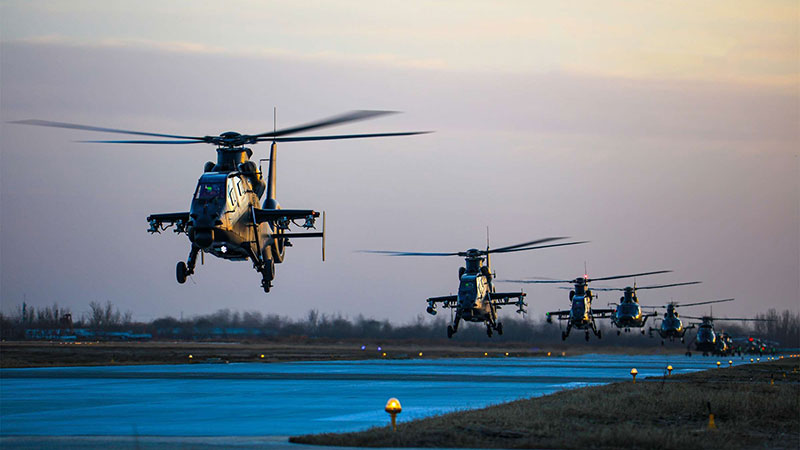Investigation reveals officials conceal civilian deaths in U.S. drone strike in Kabul
WASHINGTON, Jan. 14 (Xinhua) -- A military investigation recently disclosed by U.S. media revealed that U.S. officials knew shortly after a U.S.-launched drone strike in Kabul, Afghanistan in August 2021 in which civilians were killed, but top military officers tried to conceal the facts by making misleading statements in the ensuing weeks.
INTENTIONAL LIES
According to part of a partially redacted investigation report, which the New York Times said in a Jan. 6 report it gained through a lawsuit against the U.S. Central Command, top U.S. commanders in Afghanistan were notified within hours after the Aug. 29, 2021 drone strike near the Kabul International Airport that at least three children were killed.
Possible civilian casualties were reported within 20 minutes following the strike by U.S. military analysts, who assessed that at least three children were killed about two to three hours after the attack, the Times reported, citing the investigation.
In their sworn statements for the probe, six of the nine witnesses said they learned immediately after the strike that the missile hit an area where there were civilians who might have been killed as a result.
In the ensuing weeks, however, top military officials repeatedly refused to confirm the civilian deaths, with the commander of the Central Command, Kenneth McKenzie, saying on the day of the attack that while the "possibilities" of civilian casualties were being assessed, there were "no indications at this time."
Three days after, Mark Milley, chairman of the Joint Chiefs of Staff, defended the operation as "righteous."
It was not until Sept. 17 that McKenzie finally acknowledged that 10 civilians, including seven children, were killed in that botched strike the United States carried out under extreme pressure.
CONCEALED TRUTH
The ill-advised operation was a preemptive move foiling what intelligence personnel claimed to be a plan by the Islamic State's Afghan branch, ISIS-K, to bomb U.S. troops conducting a hasty withdrawal from Afghanistan at the time.
Since the attack, multiple outside investigations have found out that the target, Zemari Ahmadi, was not an ISIS member. Quite on the contrary, he was a longtime Afghan contractor working for a California-based aid group. Others killed in the incident were Ahmadi's family members.
On that day, Ahmadi was driving his white Toyota Carolla, which U.S. intelligence officers mistakenly believed were loaded with explosives to be used to bomb U.S. troops, to take colleagues to and from work. What were perceived as explosives in the trunk turned out to be jugs of water Ahmadi brought home for the family to drink.
"We now assess that it is unlikely that the vehicle and those who died were associated with ISIS-K or were a direct threat to U.S. forces," McKenzie said at the Sept. 17, 2021, press briefing at the Pentagon. "It was a mistake."
A subsequent review led by the Air Force inspector general, Sami Said, remains classified, the New York Times reported. But Said acknowledged that confirmation bias was an important factor in how Ahmadi became a target, which is a tendency to look for, analyze or remember information in a way that supports an existing belief.
DIFFICULT JUSTICE CLAIM
"When confirmation bias was so deadly in this case, you have to ask how many other people targeted by the military over the years were also unjustly killed," Hina Shamsi, an American Civil Liberties Union lawyer representing families of victims, was quoted by the Times as saying.
She said the investigation gained by the Times "makes clear that military personnel saw what they wanted to see and not reality, which was an Afghan aid worker going about his daily life."
Emal Ahmadi, Zemari's brother whose toddler Malika was also killed in the strike, told Xinhua in an interview days after the tragedy that the United States launching airstrikes that killed innocent civilians, including children, was heinous war crimes, and that those responsible must be held to account.
The Defense Department has said it would not punish those carrying out the strike. It has promised to compensate Zemari's surviving relatives with condolence payments, but none of them have received the monetary assistance so far.
Photos
Related Stories
Copyright © 2023 People's Daily Online. All Rights Reserved.









